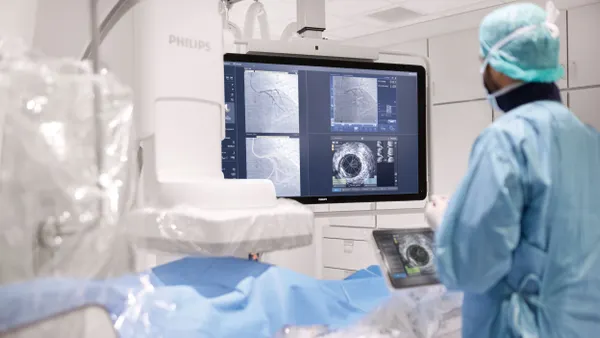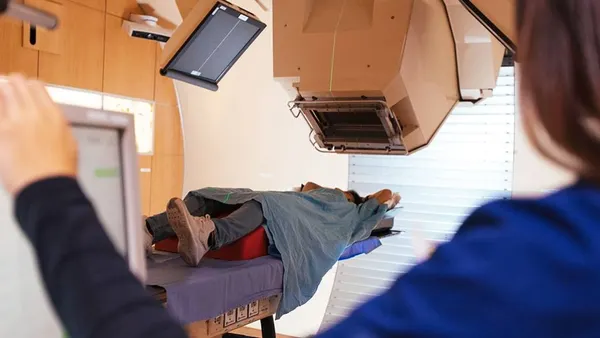Dive Brief:
- Direct-to-consumer genetic testing company 23andMe is rolling out a new report for customers Monday assessing predisposition to developing Type 2 diabetes. The report will be available to 23andMe Health+Ancestry Service customers, a product which the company currently prices at $199.
- In a company first, 23andMe said the report was developed and validated solely based on its own customers' data, assessing profiles of 2.5 million users who opted into 23andMe research. Among the initial findings were that about 22% of participants had a genetic risk of developing Type 2 diabetes, equal to that conferred by being overweight.
- From that population, the company created a polygenic scale that takes into account more than 1,000 genetic variants to give individuals a score indicating inherent level of risk of developing the disease. In addition to providing a polygenic score, the report will include information on how an individual's physical profile and lifestyle habits may influence risk, and will also provide educational resources.
Dive Insight:
23andMe is steadily adding health disorder indications to its genetic risk assessment portfolio, which now includes tests assessing predisposition to various cancers, macular degeneration and Parkinson's disease, among other conditions.
With this latest report 23andMe is looking for widespread appeal, with the company branding the test as offering customers "insight into their likelihood of developing one of the most common, yet preventable, health conditions in the United States."
The Centers for Disease Control and Prevention gives prediabetes status to individuals with higher than normal blood sugar that's not yet high enough to be diagnosed as Type 2 diabetes. More than one in three American adults has prediabetes, CDC says, but 90% of that population is unaware of their heightened risk for diabetes, in addition to heart disease and stroke.
While factors like genetics, family history and ethnicity can increase propensity to develop Type 2 diabetes, the disease is still one largely impacted by changeable lifestyle factors. But the company argues diabetes risk is currently underscreened, and understanding inherent risk can instigate interventions with healthcare providers and ultimately behavioral changes.
"When customers learn about their genetic likelihood of developing Type 2 diabetes, we believe there is an opportunity to motivate them to change their lifestyle and ultimately to help them prevent the disease," said CEO Anne Wojcicki.
Limitations of the model include that it was designed and trained primarily using variants from a European genome-wide association study, but recalibrated across all ethnic populations.
As part of the rollout, 23andMe partnered with artificial intelligence-based health coaching and chronic disease management platform Lark Health. Customers have the option to integrate their results with the platform that offers counseling on diabetes prevention and weight loss.
Among the company's recent FDA clearances are a De Novo in November for a test assessing a patient's ability to metabolize certain medicines, and a January 510(k) for a test assessing hereditary risk factors for colorectal cancer.












